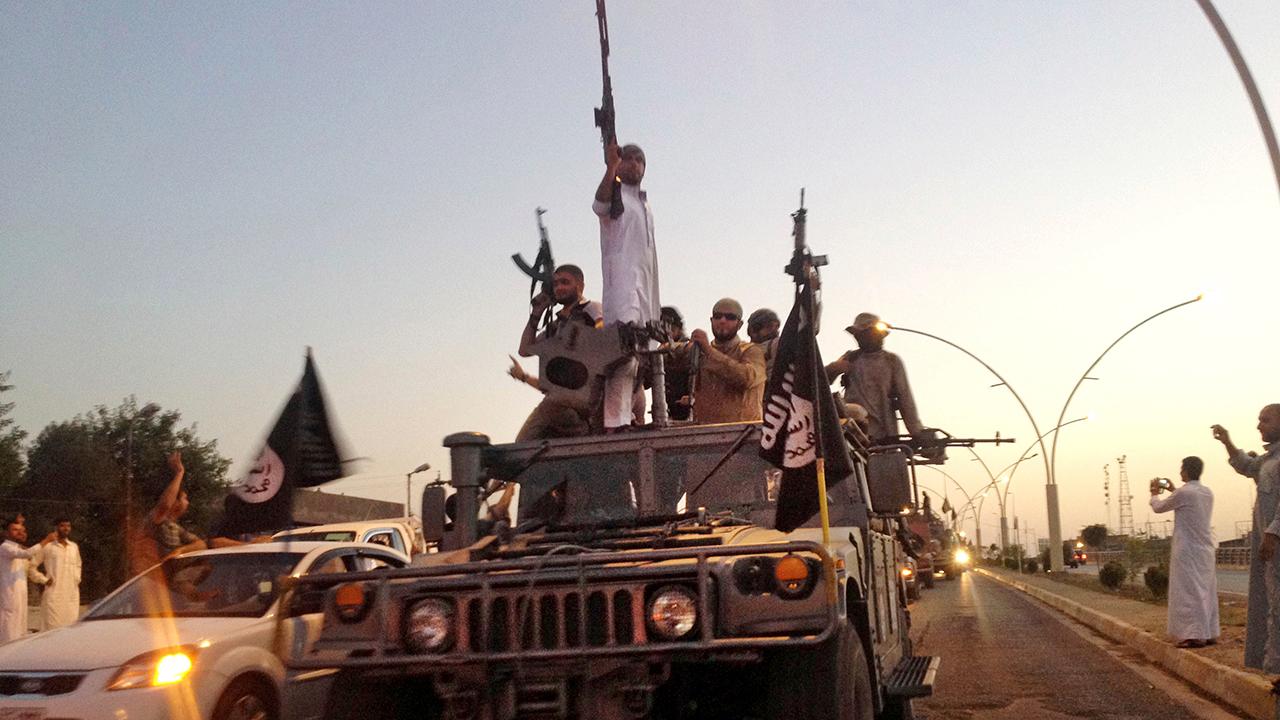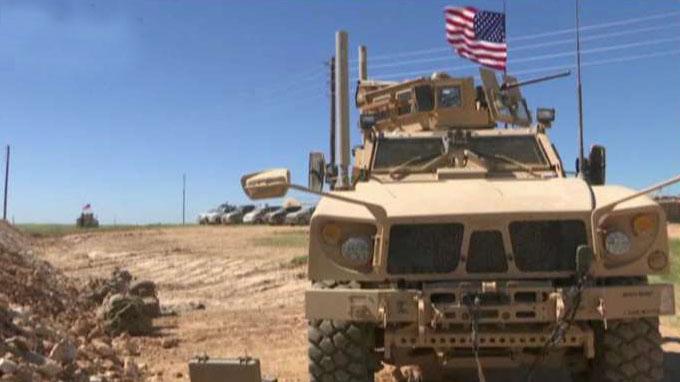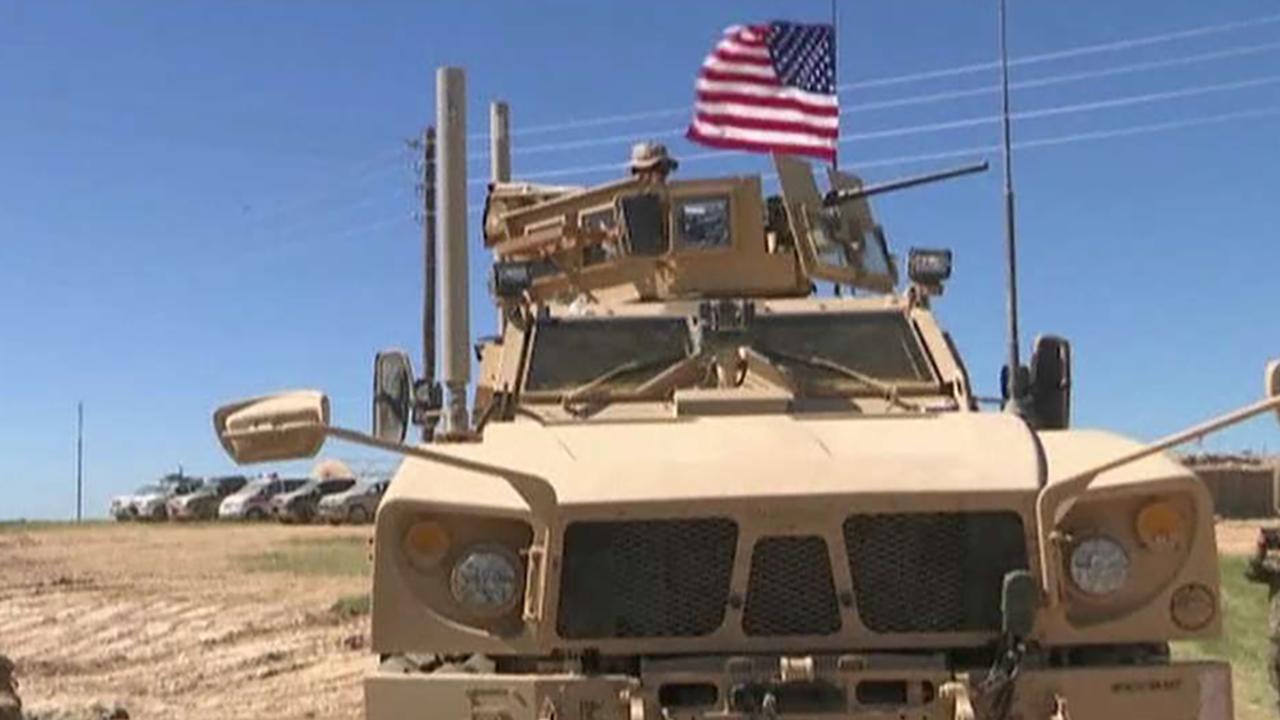Sen. Lindsey Graham says Trump plan to withdraw US troops from Syria is 'Obama-like'
Senator Lindsey Graham claims that removing U.S. troops from Syria will regenerate ISIS, harm allies in the region, and empower Iran and Russia.
Two top Republican senators Wednesday blasted President Trump's decision to pull all U.S. troops out of Syria, with both comparing it to former President Barack Obama's decision to withdraw all U.S. troops from Iraq in 2011.
Senate Foreign Relations Committee Chairman Bob Corker, R-Tenn., told reporters that a planned White House meeting to discuss Syria was canceled after he arrived at the executive mansion in the afternoon.
"Recent history is wrought with the kind of outcomes that happen when you just precipitously wake up one day and decide you’re going to do something," Corker said. "I've never seen a decision like this since I’ve been here – 12 years – where nothing is communicated in advance and all of a sudden this type of massive decision takes place."
Corker, who will leave the Senate next month, added that "in many ways" Trump's decision was worse than Obama's because "here we're in a situation where we're very close in the Eurphrates River Valley to finishing clearing out [ISIS]." The 44th president's troop withdrawal from Iraq is frequently blamed for creating a vacuum that allowed ISIS to gain a foothold in the region.
"It’s obviously a political decision," Corker added. "But I’m sad for the lives that are going to be lost very quickly and I’m sad for all the people who sacrificed in the way they have in something that was being won."
Sen. Lindsey Graham, R-S.C., who has been more closely aligned with the Trump administration than Corker, said Trump's "Obama-like decision" would signal that America's Middle East allies can’t rely on Washington.
“My theory is that by pulling 2,200 out in Northeastern Syria, that's going to boost ISIS' ability to come back,” he told Fox News. “But even more than that, the Kurds in Syria, who came forward when nobody else would to help us fight ISIS, fought bravely and died in large numbers, they're going to feel abandoned.”
“This to me is an Obama-like decision. I hope I'm wrong. But I don't think I am and I have no understanding of why we're doing this,” Graham added. “To me, it’s an ill-conceived idea. The downside is really great, and the upside is pretty small.”
U.S. officials told Fox News that the U.S. was considering pulling all 2,000 American troops on the ground in Syria. Trump appeared to allude to the decision in a morning tweet when he stated: "We have defeated ISIS in Syria, my only reason for being there during the Trump Presidency.”
Graham echoed Corker by complaining that the decision came "out of left-field," that Congress had not been formally informed and that it would make it harder to get support from allies in the region in the future: "Good luck getting somebody to help you fight this war in the future."
TRUMP ADMINISTRATION CONSIDERING PLAN TO PULL ALL US FORCES OUT OF SYRIA, OFFICIALS SAY
While Graham has emerged as an important Trump ally on Capitol Hill -- especially during the confirmation of Supreme Court Justice Brett Kavanaugh -- he has parted with the president on recent foreign policy disputes. Earlier this month, Graham also warned Trump about giving Saudi Crown Prince Mohammed bin Salman a "pass" on the killing of writer Jamal Khashoggi, saying it would make him look "weak."
On Wednesday, Sen. Marco Rubio, R-Fla., also criticized the Syria plan -- calling it a “big mistake” that would lead to increased activity by Iran, which could in turn trigger a new Israel-Hezbollah conflict.
“And our adversaries will use this as evidence that America is an unreliable partner. Today’s decision will lead to grave consequences in the months and years to come,” he said.
Sen. Ben Sasse, R-Neb., called it a "weak decision."
"Eight days ago the administration called a hypothetical pullout 'reckless.' Today, we're leaving," he said in a statement. "The President's generals have no idea where this weak decision came from. They believe the high-fiving winners today are Iran, ISIS, and Hezbollah. The losers are Israel, humanitarian victims, and U.S. intelligence gathering. A lot of American allies will be slaughtered if this retreat is implemented."
Not all Senate Republicans disapproved of the decision. Sen Rand Paul, R-Ky., said on the Senate floor that he was "proud of the president."
"Most of the voices around here like to stay everywhere for all time, and they believe that it doesn't work unless you go somewhere and stay forever," Paul said. "The president has the courage to say, 'We won in Syria, and we're coming home.' First president in my lifetime really to do that."
Earlier, the White House pushed back on the claim that this could mark the end of the campaign in Syria, saying the U.S. was transitioning “to the next phase of this campaign."
“The United States and our allies stand ready to re-engage at all levels to defend American interests whenever necessary, and we will continue to work together to deny radical Islamist terrorists' territory, funding, support, and any means of infiltrating our borders,” Press Secretary Sarah Sanders said in a statement.
The U.S. first deployed troops to the country in 2015 during the Obama administration as part of a partnership with Kurdish-led ground forces against ISIS.
In late March, Trump said U.S. forces would be leaving Syria “very soon.”
“We’re knocking the hell out of ISIS," he said. "We’ll be coming out of Syria, like, very soon. Let the other people take care of it now. Very soon. Very soon, we’re coming out.”
But Defense Secretary James Mattis and National Security Adviser John Bolton at the time convinced the president to keep American troops on the ground in Syria, not only to continue the ISIS fight, but to keep an eye on Iranian-backed forces in Syria.
“We’re not going to leave as long as Iranian troops are outside Iranian borders and that includes Iranian proxies and militias,” Bolton said in September, according to the Associated Press.
Pentagon officials have been caught off guard by the latest White House proposal, multiple officials told Fox News. The development comes less than a week after Trump spoke to Turkish President Recep Erdoğan.
Turkey has long considered the U.S.-backed ground force fighting ISIS in Syria to be a terrorist group due to their links to a separatist group in Turkey which has killed thousands in the past decades.
Fox News' Lucas Tomlinson, Caroline McKee, Chad Pergram, John Roberts and The Associated Press contributed to this report.

















































